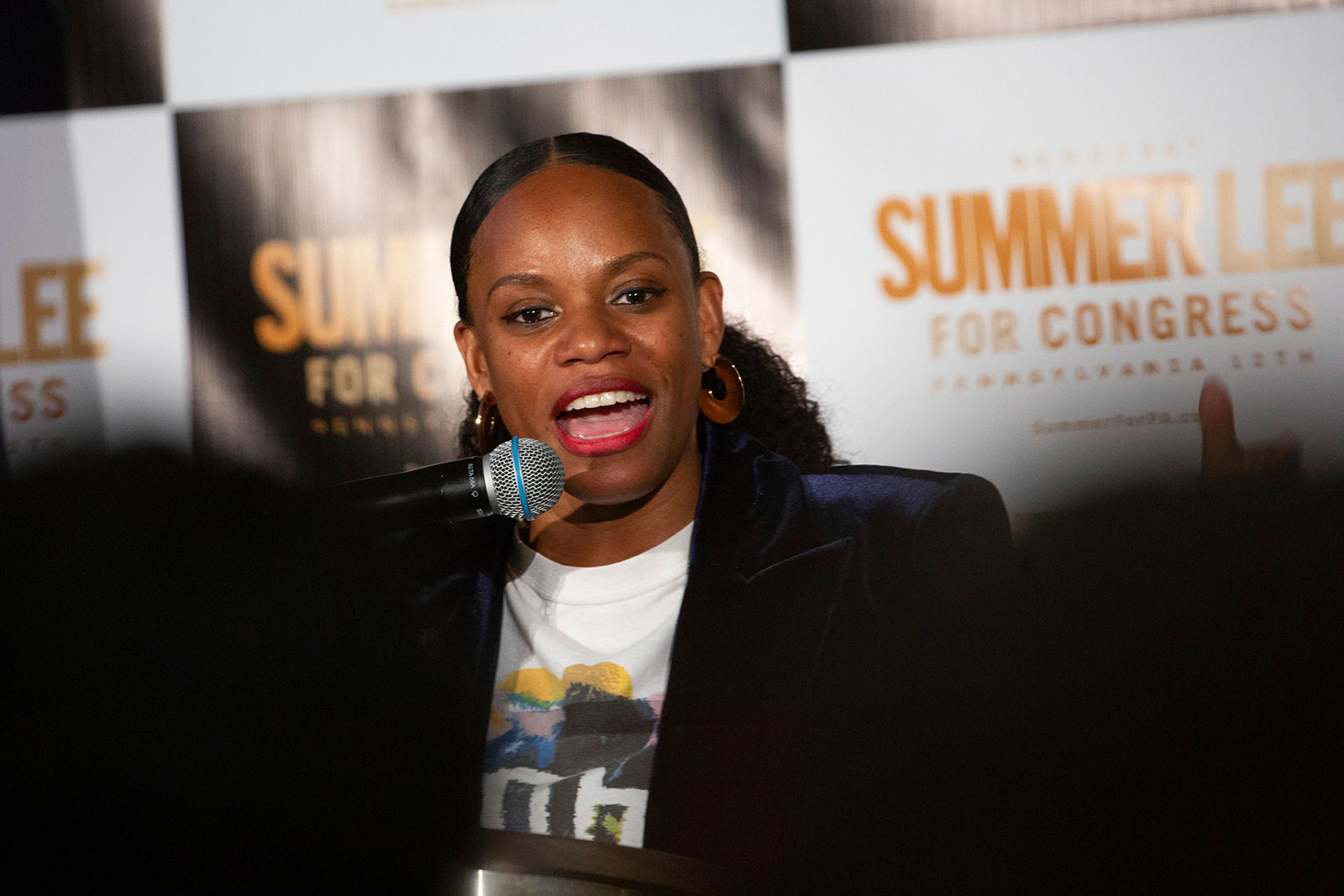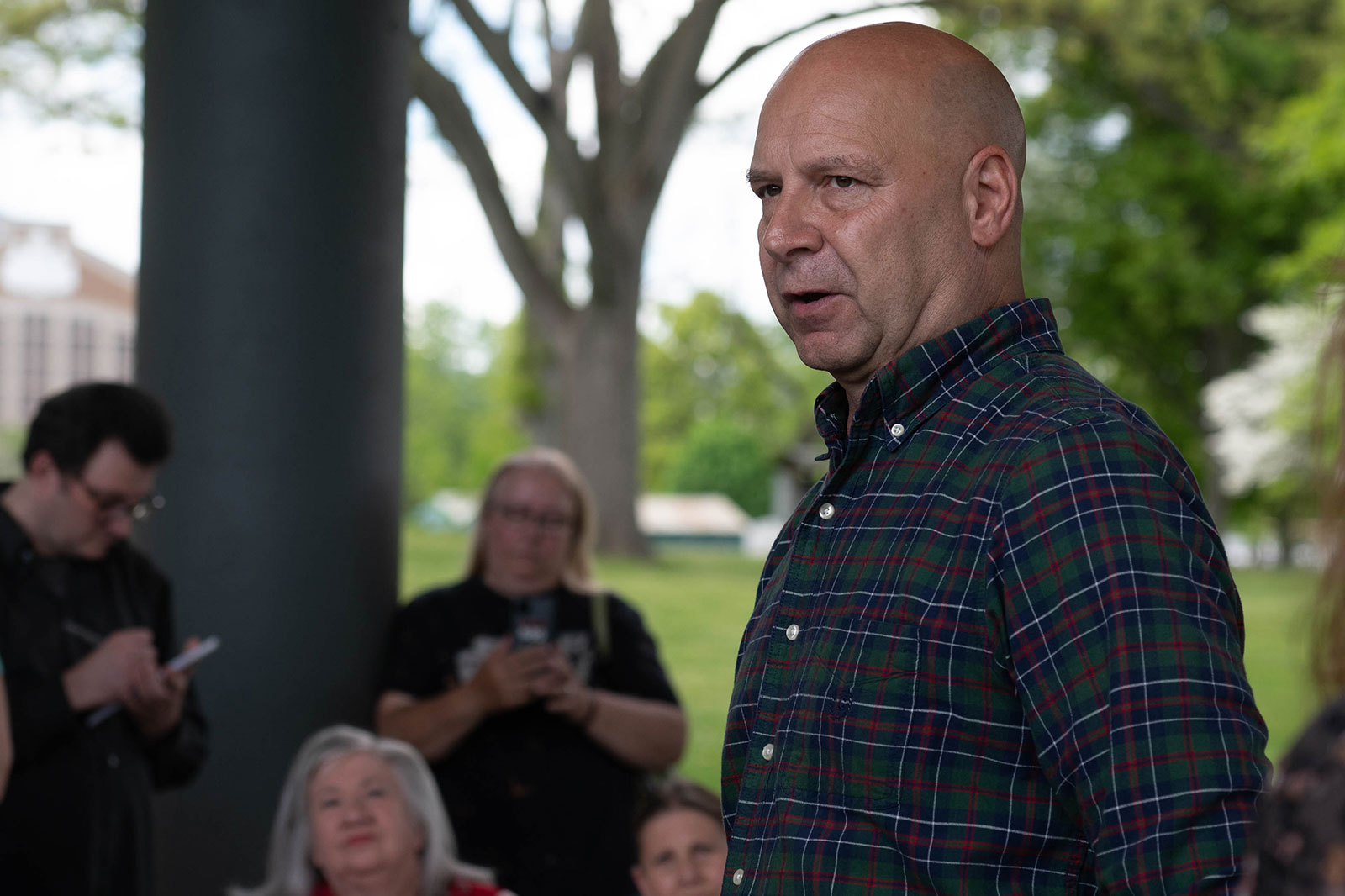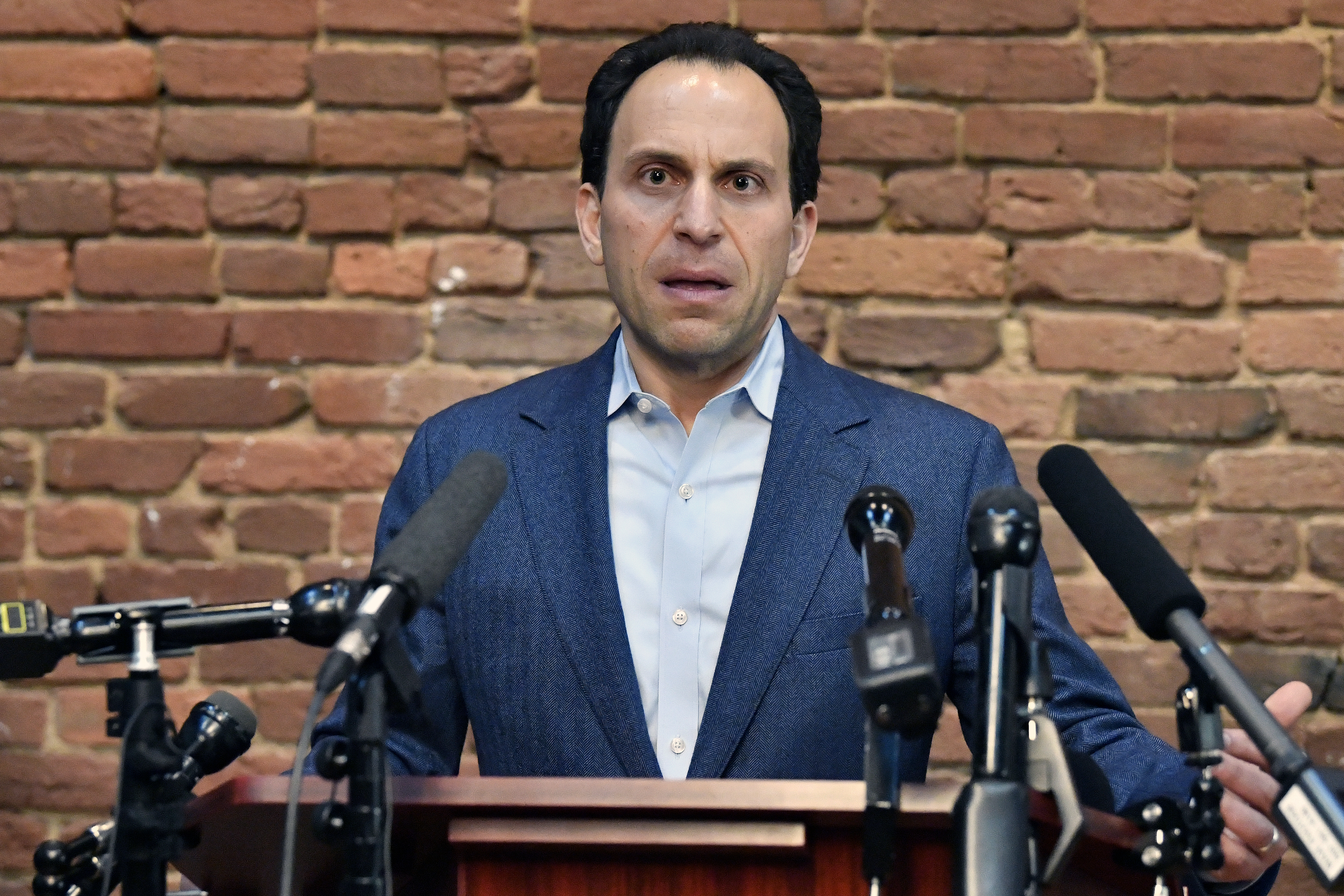
Here are 4 major categories of House primaries to watch in 2022

Here are 4 major categories of House primaries to watch in 2022
From CNN’s Simone Pathe and Gregory Krieg
Fewer competitive House districts means that some of 2022’s most consequential congressional elections are happening well before November. The real action in many districts is this spring and summer as Republican and Democratic candidates jockey for their parties’ nominations.
But some primaries are more interesting than others; either because they offer a test of the direction of a party or they help determine how competitive a district will be in the fall or simply because of a high-profile candidate.
One of the biggest factors in this year’s primaries is former President Donald Trump. Ahead of a possible 2024 White House bid, Trump is wading into this year’s midterms, often seeking revenge against Republican incumbents who he believes crossed him by certifying the results of the 2020 election or by voting to impeach him after the January 6, 2021, insurrection at the US Capitol. And even when he’s not doling out endorsements, the former President’s influence can be felt as GOP candidates up and down the ballot embrace his “Make America Great Again” rhetoric and, in many cases, rush to repeat his lies about the last presidential election.
Democrats have their own internecine battles, including one that has attracted early involvement from President Joe Biden.
Here are four major categories of House primaries to watch:
Member vs. member races: Incumbents don’t often run against each other in primaries, but the redistricting process that follows the once-a-decade census can scramble congressional maps, sometimes drawing two members into the same geographic area. That’s especially the case when states lose seats because of population changes.
The impeachment 10: Ten House Republicans voted for Trump’s second impeachment and many of them quickly earned Trump’s wrath. Four have decided not to run for reelection, and although Trump likes to take credit for pushing them out, some of those decisions likely had at least as much to do with how their seats changed in redistricting than with threats from the former President or his allies. Trump has endorsed challengers to all but one of the six in this group who are running for reelection.
Other races where Trump has endorsed against an incumbent: GOP Rep. Nancy Mace of South Carolina didn’t vote to impeach Trump last year, but she did vote to certify the results of the 2020 election and was critical of Trump after the insurrection. The former President has endorsed Mace challenger Katie Arrington, a former state lawmaker who ran unsuccessfully for the seat in 2018. With backing from Trump four years ago, Arrington defeated then-Rep. Mark Sanford in the GOP primary, but she went on to lose the general election to Democrat Joe Cunningham.
Mace, the first woman to graduate from the Citadel, put the seat back in Republican hands two years later, narrowly unseating Cunningham. The district has become more Republican in redistricting, which could benefit Arrington in the primary. But Mace also has a significant local endorsement from former South Carolina Gov. Nikki Haley, who served as Trump’s ambassador to the United Nations.
Establishment vs. progressive Democrats: Several of these races will play out, including in North Carolina on May 17. A pair of open-seat primaries in the state has been upended by outside spending against progressive candidates.
In the state’s 1st District, state Sen. Don Davis has gotten a big lift from the United Democracy Project, an AIPAC-aligned group, against former state Sen. Erica Smith, the progressive headliner in the four-person race. UDP has spent nearly $900,000 supporting Davis, whose voting record on abortion rights has come under criticism.
UDP has spent about the same for state Sen. Valerie Foushee in the new 4th District, where progressives favor Durham County Commissioner Nida Allam, the first Muslim woman elected to public office in North Carolina. Foushee lost the endorsement of the state Democratic Party’s progressive caucus over her UDP support, with its chairman citing AIPAC’s financial backing of GOP candidates who voted to overturn the 2020 presidential election. Former American Idol star Clay Aiken is also running here.
Read more about these races here.
Progressive Democratic House candidates are being hammered by outside spenders ahead of primaries
From CNN’s Gregory Krieg
As Democratic House members began planning their exits last year ahead of an expected midterms backlash, progressive outsiders were organizing, targeting soon-to-be open seats in traditionally blue districts.
The goal, as leading progressives have articulated over the last year or so, is to shift the center of gravity in the House Democratic caucus toward the left. Even if the party loses its majority in November, they reason, progressives would be well-positioned — with stronger negotiating hands — when the pendulum swings back in the coming years.
But as the primary season shifts into high gear, that project has been walloped by a late blitz of spending from outside organizations in support of its moderate, establishment-friendly opponents. Those interventions may prove consequential in close races in Pennsylvania, North Carolina, Oregon and, a week from Tuesday, a key runoff in Texas.
The outside groups are following a blueprint — called “The Ohio Model” by the progressive American Prospect — primed during the 2021 Ohio special election that helped Shontel Brown, now the representative from the state’s 11th Congressional District, overtake progressive Nina Turner, a former Bernie Sanders presidential campaign co-chair and vocal critic of the Democratic establishment. Earlier this month, Brown, again with significant outside support, won renomination over Turner by an even greater margin.
The next test of the aggressive new tactic will come in a series of races Tuesday, with a particular focus on Pennsylvania’s 12th Congressional District, which includes parts of Westmoreland and Allegheny counties, including Pittsburgh, which has become a prime battleground. Progressive Democratic state Rep. Summer Lee is believed to be running neck and neck with moderate Steve Irwin, an attorney endorsed by retiring Rep. Mike Doyle, in a five-person race.

The primary has emerged as one of the most expensive and contentious of the cycle for Democrats, with United Democracy Project, the group aligned with the American Israel Public Affairs Committee, pouring more than $2 million — the vast majority of it aimed at damaging Lee — into an already heated intra-party ideological proxy fight.
Lee, who was endorsed by Sen. Sanders, a Vermont independent, and recruited by Justice Democrats, told CNN she was prepared for an onslaught of outside opposition but that the remarkable volume of spending has taken her aback.
“I don’t know that I could have conceptualized what $3 million looks like in three weeks. I think that sort of spending is obscene; it’s intentional,” Lee said, and designed “to send a very specific message: not just that we’re trying to win an election, but we’re trying to destroy you, we’re trying to depress voter turnout and we’re trying to discourage voters.”

One particular line of attack from United Democracy Project, which used Lee’s criticism of then-candidate Joe Biden during the 2020 Democratic presidential primary to accuse her of being disloyal to the party, triggered a backlash from a slew of local officials, including Pittsburgh Mayor Ed Gainey, who sent an open letter of condemnation to Irwin’s campaign.
“As Democrats from across the commonwealth, we find it shameful that you would team up with a corporate super PAC that has endorsed over 100+ pro-insurrectionist Republicans to attack and smear our Democratic colleague, state Rep. Summer Lee, as not a Democrat,” the Lee supporters wrote.
Irwin’s campaign, which could not be reached for comment, defended the ad to the Pittsburgh Tribune-Review at the time, and United Democracy Project has been unapologetic — while also seizing on more recent comments in which Lee declined to say whether she would have voted for the bipartisan infrastructure bill in the House.
Progressives in Washington ultimately supported the legislation but were angry over Democratic leadership’s decision to go back on its plan to move it in tandem with President Biden’s sweeping Build Back Better plan, which subsequently — as they had warned — died in the Senate.
Keep reading here.
Republicans and Democrats alike go after Trump-endorsed Mastriano in Pennsylvania governor’s race
From CNN’s Kyung Lah

The message was blunt to Pennsylvania Republicans in the closing days before the May 17 primary: Don’t pick someone who can’t win.
As he announced he was dropping out of the GOP gubernatorial race and throwing his support behind former US Rep. Lou Barletta, state Senate President Pro Tempore Jake Corman called the open governor seat “an opportunity.”
“The only way we will not be successful in the fall is if we nominate someone who can’t possibly win,” he said.
That comment was directed at the presumed front-runner for the Republican nomination, state Sen. Doug Mastriano. The clearest sign of Mastriano’s presumed dominance in the primary came Saturday when he earned a last-minute endorsement from former President Trump. Mastriano has been one of the leading peddlers in Pennsylvania of Trump’s lies about the 2020 election.
“He has revealed the Deceit, Corruption, and outright Theft of the 2020 Presidential Election, and will do something about it,” Trump said in a statement Saturday, adding that Mastriano “is a fighter like few others, and has been with me right from the beginning, and now I have an obligation to be with him.”
But Corman’s remarks showcased what’s been an open worry among Republicans — that Mastriano could be too extreme to win a general election in the battleground state.
Swing voters in the heavily populated suburbs of Philadelphia and Pittsburgh have proved decisive in previous elections — a voting bloc that state Senate GOP floor leader Kim Ward said Republicans need to win — and they may not be won over by Mastriano.
“Senator Mastriano has appeal to base Republicans, but I fear the Democrats will destroy him with swing voters,” Ward wrote in a Facebook post this week announcing she was supporting former Delaware County Council member Dan White for governor. “The goal isn’t to win the primary. Winning the primary and losing the general because the candidate is unable to get the votes in the middle isn’t a win. We need a candidate who can win in November.”
Democrats, eager to pounce on Mastriano’s surging status within the crowded Republican field, rolled out a statewide political ad in the closing days of the campaign.
“This is Republican state Sen. Doug Mastriano,” the ad begins. It explains that Mastriano wants to outlaw abortions and end vote by mail and is a strong Trump supporter — all credentials Mastriano wants his base to know, but ones that Democrats think will end up hurting him should he be the GOP contender in November.
The ad is paid for by the campaign of Josh Shapiro, the state attorney general who is running unopposed to be the Democratic nominee for governor.
“I think it’s pretty clear he’s going to be their nominee,” Shapiro told CNN.
It’s a strategy that campaigns across the country have used before — boost the candidate that the opposing side believes would be the weakest challenger in the general election.
Still, in the final days before the Pennsylvania primary, Mastriano stood before supporters in Western Pennsylvania and proudly asserted that he was the “most conservative candidate” running for the Republican gubernatorial nomination.
Keep reading here.
What you need to know about Oregon’s primaries
From CNN’s Ethan Cohen and Melissa Holzberg DePalo
With Democratic Oregon Gov. Kate Brown being term-limited and unable to run for reelection in 2022, the Democratic gubernatorial primary is the most hotly contested statewide primary in Oregon this year.
Here’s a look at the key races to watch:
Race: Governor (Democratic)
- Candidates: Former Oregon House Speaker Tina Kotek, Oregon Treasurer Tobias Read
- Snapshot: For much of the Oregon Democratic primary for governor, conversation centered on whether former New York Times columnist Nicholas Kristof qualified to run for governor despite not living in the state for at least three years before running. After the state Supreme Court announced in February that Kristof could not run, Democrats were still left with more than a dozen candidates in the race. However, the race has narrowed to two of them: former Oregon House Speaker Tina Kotek and Oregon Treasurer Tobias Read. The state hasn’t elected a Republican chief executive since Gov. Victor Atiyeh won a second term 1982.
Race: 5th Congressional District (Democratic)
- Candidates: Rep. Kurt Schrader and Jamie McLeod-Skinner
- Snapshot: The Democratic primary in Oregon’s 5th Congressional District will be an early test of President Biden’s sway in the party. Rep. Kurt Schrader, who has represented the 5th District since 2009, won Biden’s endorsement in April, even as he’s angered some Democrats in Congress. He voted against increasing the minimum wage to $15 an hour and allowing Medicare to negotiate drug prices. He also reportedly likened former President Trump’s second impeachment to a “lynching” — comments he later apologized for – and at one point was against the American Rescue Plan. Schrader is facing a progressive primary challenge from Jamie McLeod-Skinner who has been endorsed by several local county Democratic parties and Massachusetts Democratic Sen. Elizabeth Warren.
Race: 6th Congressional District (Democratic)
- Candidates: Carrick Flynn, state Rep. Teresa Alonso, state Rep. Andrea Salinas, Loretta Smith, Matt West, Kathleen Harder, Cody Reynolds
- Snapshot: Several Democrats are lining up for their shot to represent Oregon’s new congressional district. The new district marks the first time in 40 years that the state gained a congressional district after the US census. Nine candidates have filed to run including state Rep. Teresa Alonso, state Rep. Andrea Salinas, former Multnomah County Commissioner Loretta Smith, engineer Matt West, Dr. Kathleen Harder and Army veteran Cody Reynolds. All those Democrats, though, will have to compete against Carrick Flynn, who has been backed by billionaire Sam Bankman-Fried and House Majority PAC (HMP), a key Democratic Super PAC focused on House races. HMP’s support of a white male candidate who has never held elected office in a crowded primary field has drawn criticism from the other candidates and their supporters including from CHC BOLD PAC, the political arm of the Congressional Hispanic Caucus, which has endorsed Salinas.
Voting times: Oregon utilizes universal vote by mail for its elections. All registered voters are sent a ballot two to three weeks before the election, depending on their county.
Drop boxes and county election offices close at 11 p.m. ET (8 p.m. local time) on Election Day. Mail ballots can be received by May 24 if they’re postmarked on or before Election Day.
Voter eligibility: The deadline to register to vote was April 26 and ballots started being sent to instate voters on April 27. Ballots are mailed to Oregon voters with out-of-state addresses, who are not in the military or overseas, on April 18.
Voters can vote early in person at their county board of elections any time after mail ballots have been sent out. Only registered party members can participate in that party’s primaries.
Here’s a look at redistricting in the state and how the new congressional map is shifting voting power:

Voters across North Carolina are also weighing in on highly contested school board races
From CNN’s Katie Lobosco
North Carolina’s Senate race is among the most competitive in the nation this year. But voters across the state are also weighing in on highly contested school board races fueled by parents who felt voiceless throughout the pandemic and a conservative focus on how topics like race and sex are taught in public schools.
In many North Carolina counties, the May 17 primary offers voters a long list of candidates to choose from for their local school board.
In Forsyth County, 28 candidates are vying for nine school board slots, and in Johnston County, 13 people are on the ballot to fill three open seats. In solidly Democratic Durham County, a slate of conservatives is hoping to capture a majority of the board, and a Wilmington-based political action committee has endorsed four Republicans for the New Hanover County Board of Education.
The largest school system in the state, Wake County, won’t hold a school board election until November, but it’s already expected to be competitive with all nine of the board’s seats up for election.
“We are seeing a lot more people running and a lot of veteran school board members retiring,” said Leanne Winner, executive director of the North Carolina School Boards Association. “Many school board meetings became very contentious over the last couple of years,” she added.
The increase in retirements comes after two years of pandemic-related chaos that put school boards in the spotlight. In many places, the decision to return to in-person learning and whether to mandate masks fell to school board members who are usually elected and unpaid officials.
Now, in North Carolina and across the country, some parents are voicing concern about issues like book bans and critical race theory.
Pandemic fuels parent activism: Sarah Absher said she never thought about running for school board, or any elected position, before the pandemic. But things changed once her son was home learning remotely and she felt that parents weren’t being heard by her district’s current board members. Now she’s running in the Republican primary for a seat on the Winston-Salem/Forsyth County Board of Education.
“Many have advised me not to talk about Covid policies. They say people are ready to move on,” she told the crowd at a student-hosted candidate forum at West Forsyth High School on May 11.
“But before we just sweep the last two years under the rug, we need to acknowledge the leaders responsible for these policies that failed you,” she said, adding, “You had to play sports outside in a mask. Some of you missed proms and other important life events. So many of you, including my son, suffered learning loss because of remote learning.”
All of the nine seats on the Winston-Salem/Forsyth County Board of Education are up for grabs this year. The school system is one of the largest in the state, consisting of 81 schools.
A majority of the candidates are parents or former educators. Seven Republicans, four Democrats and one libertarian are running in the May 17 primary for the three at-large seats on the board.
But the candidate list doesn’t end there. Five Democrats are vying for two District 1 seats, which represent the urban core of Winston-Salem. Ten Republicans have filed to run in the primary for the four seats representing the more rural District 2, and one Democrat is expected to be on the ballot for District 2 in November.
Eighteen of the candidates spoke about their priorities at the May 11 forum. They included a range of issues, including pandemic-related learning loss, a staffing shortage, board transparency, preparing students for college and careers after graduation, opposing critical race theory and advocating for parental rights.
Democrat Sabrina Coone-Godfrey is another parent running for an at-large school board seat. A long-time volunteer in the school district, Coone-Godfrey said she thinks it’s time to move past focusing on the decisions made during the pandemic.
“We have folks running that are still very stuck on the pandemic train. We’ve got to move past that. We have so many other issues in our district,” she said, adding that focusing on teacher recruitment and retention would be one of her first priorities if elected.
Read more here.
What you need to know about Kentucky’s primaries
From CNN’s Ethan Cohen and Melissa Holzberg DePalo

Kentucky GOP Sen. Rand Paul is up for reelection this year – and while he is on track to win the Republican nomination in May, he’ll likely face Democrat Charles Booker, a former state representative who ran for Senate in 2020 and narrowly lost the primary to establishment-backed Amy McGrath, the first woman to fly an F-18 in combat.
Poll times: Kentucky straddles the eastern and central time zones. While many of the commonwealth’s major cities – Frankfort, Louisville and Lexington – are in the eastern time zone, the western part of the state including Bowling Green is on central time.
Polls close in Kentucky at 6 p.m. local time so polls close in the state at 6 or 7 p.m. ET. CNN can make projections in congressional districts 3, 4, 5 and 6 at 6 p.m. ET, but can’t make projections in statewide races or districts 1 or 2 until 7 p.m. ET
Voter eligibility: The deadline to register to vote was April 18.
In Kentucky only registered members of a party can vote in that party’s primary.
Kentucky voters must have a reason to vote by mail, and the absentee ballot request portal was open from April 2 to May 3. Ballots must be received by county boards of elections clerk by close of polls on Election Day.
All voters could vote early in person between May 12 and May 14. Kentuckians who are eligible to vote by mail also had the option to vote in-person between May 4 and May 11 (excluding weekends).
Mail-in ballots can be processed once they are received, and it’s likely that early votes and absentee ballots will be counted first once polls close. However, that can vary by county.
Here’s a look at redistricting in the state and how the new congressional map is shifting voting power:

Pennsylvania GOP Senate candidate predicts “incredibly close election” in rally
From CNN’s Alex Rogers and Jeff Zeleny
Pennsylvania GOP Senate candidate David McCormick predicted “an incredibly close election” as he rallied the hometown crowd at his alma mater, Bloomsburg High School, last evening.
“It’s going to be an incredibly close election,” said McCormick. “If I win the primary, it’s going to be the most high-profile, most important, most expensive Senate race in history.”
A couple of recent public polls show McCormick narrowly trailing celebrity TV talk show host Mehmet Oz, who was endorsed by former President Donald Trump, and a neck-and-neck race with political commentator Kathy Barnette.
McCormick made no mention of Oz or Barnette in his stump speech. But at a previous event, McCormick told CNN’s Jeff Zeleny that Oz isn’t popular or conservative enough to win.
“The problem is Mehmet Oz isn’t that popular in Pennsylvania and he isn’t a conservative – America First conservative — and that’s why his candidacy hasn’t really taken off,” McCormick told CNN.
McCormick also said that the state’s voters would be “able to cut through and see who is authentic and who’s not, what’s real and what’s not.”
“I think they’ve waited a long time to make this decision — and that’s why nobody can really predict what is going to happen because you’ve got this huge amount of voters coming together right here at the very end,” added McCormick. “As I said, I’m optimistic, I’ve got my fingers on the pulse of PA. It feels good to me. We’ll see tomorrow.”
At the high school event, McCormick, the former CEO of the massive hedge fund Bridgewater Associates, took a walk down memory lane and acknowledged the toll of the vicious campaign in a joke.
“How many of you have ever applied for a job where you get a lot less money and you get your reputation destroyed overnight?” he asked the crowd. “Well, that’s the job I’m applying for.”
“But I’m applying for that job because I love this country,” said McCormick to applause.
The event on Monday implicitly drew a contrast with Oz and Barnette, who did not grow up in Pennsylvania, and McCormick reminded the 100-person audience of his connection to the state after recently moving back to it from Connecticut.
McCormick’s speech was flecked with references to his youth, recalling his work as a busboy for a local hotel, shouting out his wrestling coach and chiding an old friend whose phone went off while he was talking. He said he was a seventh-generation Pennsylvanian. He spoke for about 30 minutes and spent as long afterwards chatting with old teammates and friends.
McCormick only defended himself from one attack in his speech: that he is too cozy with China. He said that he would be “the strongest senator” on China, advocating to “decouple” the US and Chinese economies on pharmaceutical products and semiconductors. In a rare instance mentioning Trump, McCormick said that his international business experience, like Trump’s, is an asset, not a liability, in countering China.
His supporters said that McCormick is a man of integrity and that the attacks against him are wrong, particularly those on China.
Mark Williams, a 56-year-old surgeon, said he knew McCormick since they were teenagers, and he had baled hay and cut Christmas trees with him.
“Two percent of his business was in China,” said Williams. “And now he’s embedded with China. You kidding me? That just makes me mad.”
“He was raised here and he got his values from here,” added Williams. “And that’s what matters.”
What Pennsylvania voters are saying about Trump’s endorsement of Oz — and its impact on the race
From CNN’s Kate Sullivan and Alex Rogers
Celebrity TV host Mehmet Oz arrived at a fire station in a small town outside Philadelphia on Saturday, seeking to convince the roughly 25 people gathered that he was a real part of the MAGA movement created by the man who backed him, former President Trump.
The challenges have stacked up against Oz in the crucial Pennsylvania Senate Republican primary, from one opponent’s relentless attacks portraying him as a “Hollywood liberal” to a late surge by another candidate embraced by the grassroots.
But here in Secane, Oz portrayed himself as the kind of conservative who would “never let you down,” proudly noting Trump said he is the most electable GOP candidate in the race that could determine the future party control of the Senate.
“One of the reasons that President Trump endorsed me,” the heart surgeon told the potential voters gathered here, “was because after doing all the work of calculating who’s most likely to win in November he decided I was the person.”
Afterward, Oz appeared to win over at least one undecided voter, who had seen the attacks critiquing Oz’s past, more moderate views on abortion and gun control.
Jonathan Menta, a 52-year-old corporate audit manager, said he was impressed by Oz’s pitch, especially on increasing natural gas production in the state, and could now see himself supporting him.
“I received a lot of literature at my home that say that Dr. Oz is more Republican in Name Only,” Menta said. “It sounds like today though, if he’s true to his word and what he was speaking about today, that those may be mischaracterizations of his positions.”
Richard Koehler didn’t need to be convinced: He was already all in for Oz. “I like his ideas, his questions. He’s a conservative by nature and seems genuine.”

The fact that Trump endorsed Oz, “put the icing on the cake.”
Tuesday’s primary will not only nominate a GOP candidate in the pivotal Senate race but will also be the latest test of Trump’s sway over the Republican Party.
Dozens of Trump supporters at rallies this past week for deep-pocketed candidate David McCormick said that Trump’s endorsement did not factor into their decision, and expressed a distrust and dislike of Oz.
Jeff McHugh, 46, described Oz as a RINO — “Republican In Name Only” — and said he thought Oz was only running as a Republican because he had determined he could win the most support among that group of voters.
“I’m definitely a pro-Trump guy, but that doesn’t mean I’m pro-Oz,” McHugh said.
Larry, a 66-year-old retired contractor wearing a MAGA hat, described Oz as “phony” and “fake.”
“He’s going to be a turncoat. I don’t trust him. He’s got that look about his face. He’s got that smirky smirk that I don’t like,” Larry said. He said he “can’t imagine” why Trump endorsed him.
Pennsylvania Republican Sen. Pat Toomey, whose retirement created the race for the open seat, told CNN “it’s hard to say” how much of a difference Trump’s endorsement of Oz is going to make.
“I think it’s quite possible that it won’t be a huge factor,” said Toomey, because Oz is already so well-known after 13 seasons of his daytime TV talk show. Toomey has not endorsed a candidate.
Interviews with dozens of Republican voters across the state reveal many are waiting until the last moment to decide which candidate they’ll cast their ballot.
Rich Walzak, 64, said he’s still undecided because he’s looking for a candidate who is trustworthy, committed to following through on promises and can beat a Democrat in November.
“Everybody has good points, but I’m looking for somebody, whether it’s a man or a woman — just keep your word. Be true to yourself,” Walzak said. “But you have to be realistic. It’s not so much who you like, it’s who can carry the bag.”
Read more here.
Louisville mayoral candidate was targeted in campaign headquarters shooting in February, authorities say
From CNN’s Devan Cole, Paul P. Murphy and Paradise Afshar

In February, a Democratic candidate for mayor in Louisville, Kentucky, was the target of a shooting at his campaign headquarters, authorities said.
Democrat Craig Greenberg was the target of the shooting on Feb. 14 in the city’s Butchertown neighborhood, Louisville Metropolitan Police Department Chief Erika Shields said, adding that although there were no injuries in the incident, a round did appear to strike Greenberg’s clothing.
Quintez Brown, 21, was charged with attempted murder and four counts of wanton endangerment in the first degree in connection with the shooting, according to Louisville Metro Police Department Public Information Officer Elizabeth Ruoff.
A Kentucky grand jury indicted Brown on charges of attempted murder and first-degree wanton endangerment on March 29.
Greenberg said on Feb. 15 that he and his staff were gathered for a morning meeting in his office at campaign headquarters when an individual walked in.
“We asked if we could help him. And he pulled out a gun, aimed it directly at me and opened fire,” Greenberg told CNN’s John Berman on “New Day.” “I was fortunate that one of my brave teammates slammed the door shut. They were able to throw some desks on top of the door and the suspect fled. So, we are very blessed to be here today. All of us on the team are.”
Brown pleaded not guilty during a court appearance Feb. 15, and his bond was set at $100,000. The court also issued a no-contact order, barring him from going to the location of the incident and contacting Greenberg or anyone associated with his campaign. A no-firearm order was also issued.
Brown’s attorney said his client would be undergoing a mental health evaluation, saying he believes “there are serious mental issues at play here.”
Brown is a student at the University of Louisville, John R. Karman III, a spokesperson for the school, told CNN. The Louisville Courier Journal also identified Brown as a former intern and editorial columnist with the newspaper.
Shields said on Feb. 14 that authorities had “no known motive at this time,” adding: “We also have no reason to believe at this time that this individual was acting anything but alone.”
Greenberg told CNN he was under the impression that he was the target of the shooting when asked about the investigation. He said he doesn’t believe he had met Brown prior to the shooting but recalled reading about him in media reports from the previous year.
Tim Beam, a spokesperson for the FBI, also confirmed that FBI agents responded to the scene. Beam said the FBI was working to determine whether any federal crimes took place during the attempted shooting.
ATF spokesperson Cassandra Mullins confirmed that the agency assisted Louisville Metro Police in responding to the incident, which began after 911 calls were made regarding an “active aggressor.”
CNN’s Chandelis Duster, Raja Razek, Shawna Mizelle, Theresa Waldrop, Jenn Selva and Amanda Watts contributed reported to this post.
Source: https://www.cnn.com/politics/live-news/primary-election-results-pennsylvania-north-carolina-2022/h_e78e0ac208c39cd7c682a7f53c9b1d00


















